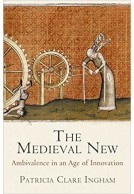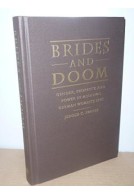Rewriting Saints and Ancestors (Hardback)
Imprint: Pennsylvania University Press
Pages: 408
ISBN: 9780812246360
Published: 13th October 2014
Script Academic & Professional
Pages: 408
ISBN: 9780812246360
Published: 13th October 2014
Script Academic & Professional
You'll be £19.95 closer to your next £10.00 credit when you purchase Rewriting Saints and Ancestors. What's this?
+£4.99 UK Delivery or free UK delivery if order is over £40
(click here for international delivery rates)
Need a currency converter? Check XE.com for live rates
(click here for international delivery rates)
Need a currency converter? Check XE.com for live rates
Thinkers in medieval France constantly reconceptualised what had come before, interpreting past events to give validity to the present and help control the future. The long-dead saints who presided over churches and the ancestors of established dynasties were an especially crucial part of creative memory, Constance Brittain Bouchard contends. In Rewriting Saints and Ancestors she examines how such ex post facto accounts are less an impediment to the writing of accurate history than a crucial tool for understanding the Middle Ages.
Working backward through time, Bouchard discusses 12th-century scribes contemplating the 9th-century documents they copied into cartularies or reworked into narratives of disaster and triumph, 9th-century churchmen deliberately forging supposedly late antique documents as weapons against both kings and other churchmen, and 6th- and 7th-century Gallic writers coming to terms with an early Christianity that had neither the saints nor the monasteries that would become fundamental to religious practice. As they met with political change and social upheaval, each generation decided which events of the past were worth remembering and which were to be reinterpreted or quietly forgotten.
By considering memory as an analytic tool, Bouchard not only reveals the ways early medieval writers constructed a useful past but also provides new insights into the nature of record keeping, the changing ways dynasties were conceptualised, the relationships of the Merovingian and Carolingian kings to the church, and the discovery (or invention) of Gaul's earliest martyrs.
Other titles in Pennsylvania University Press...















